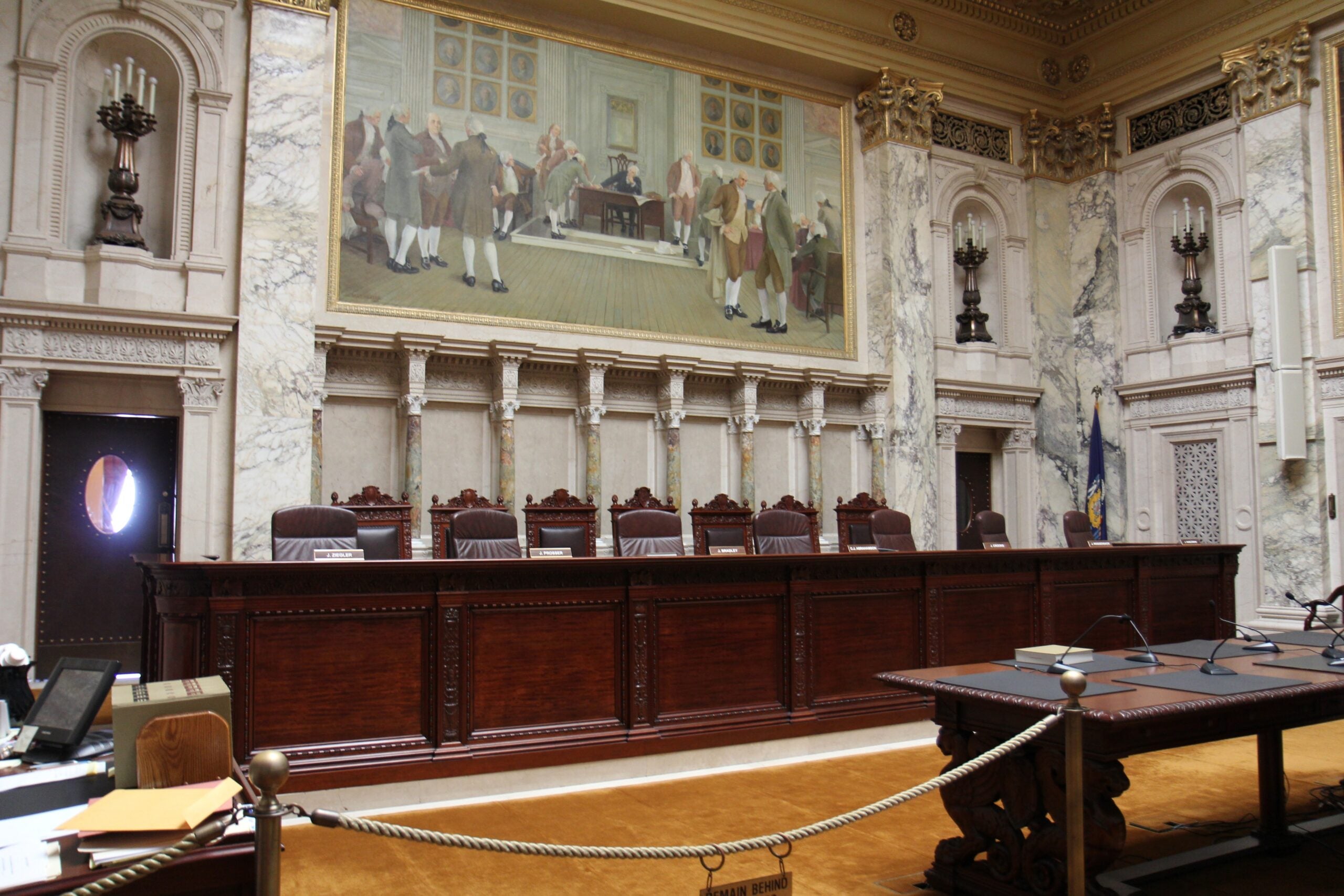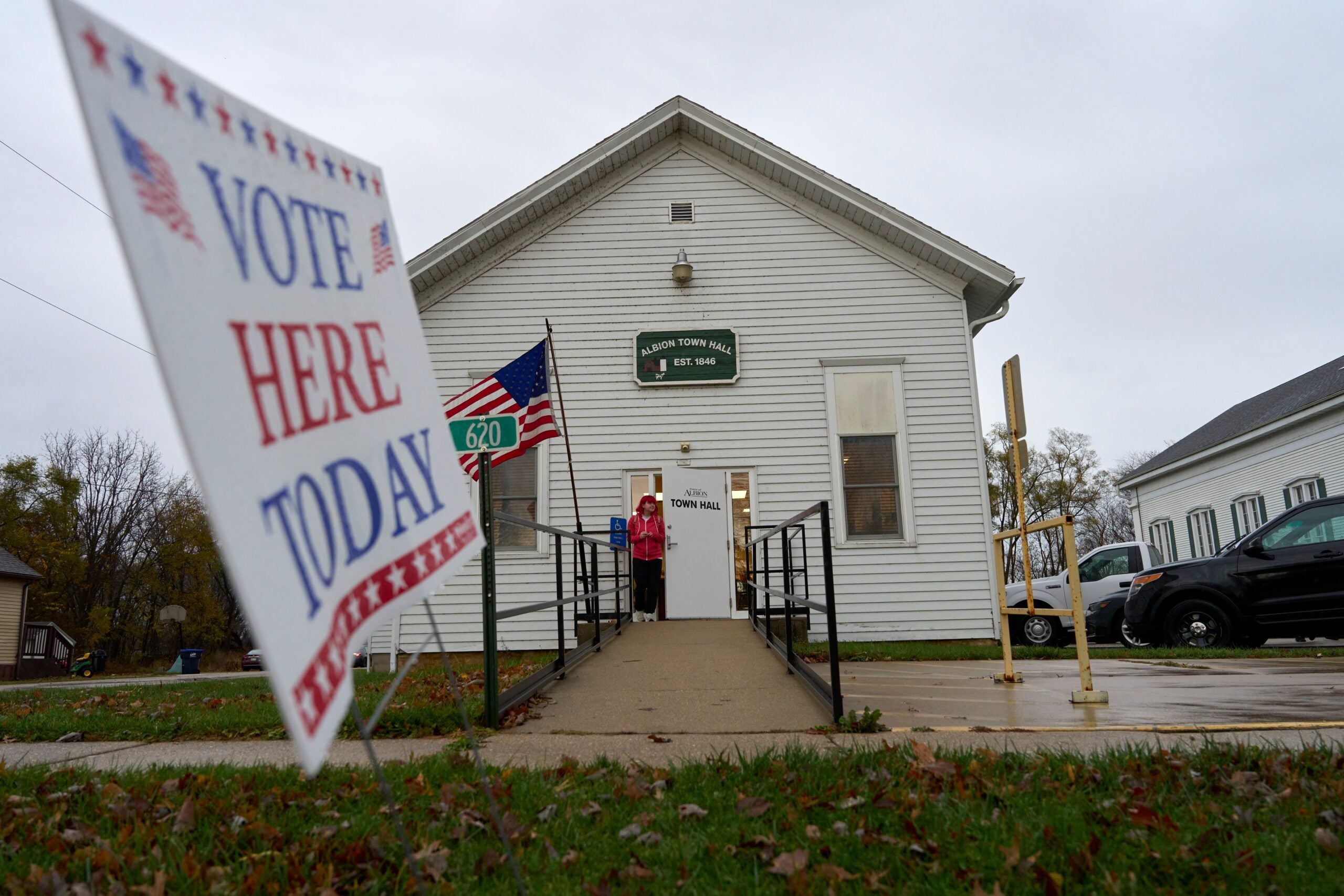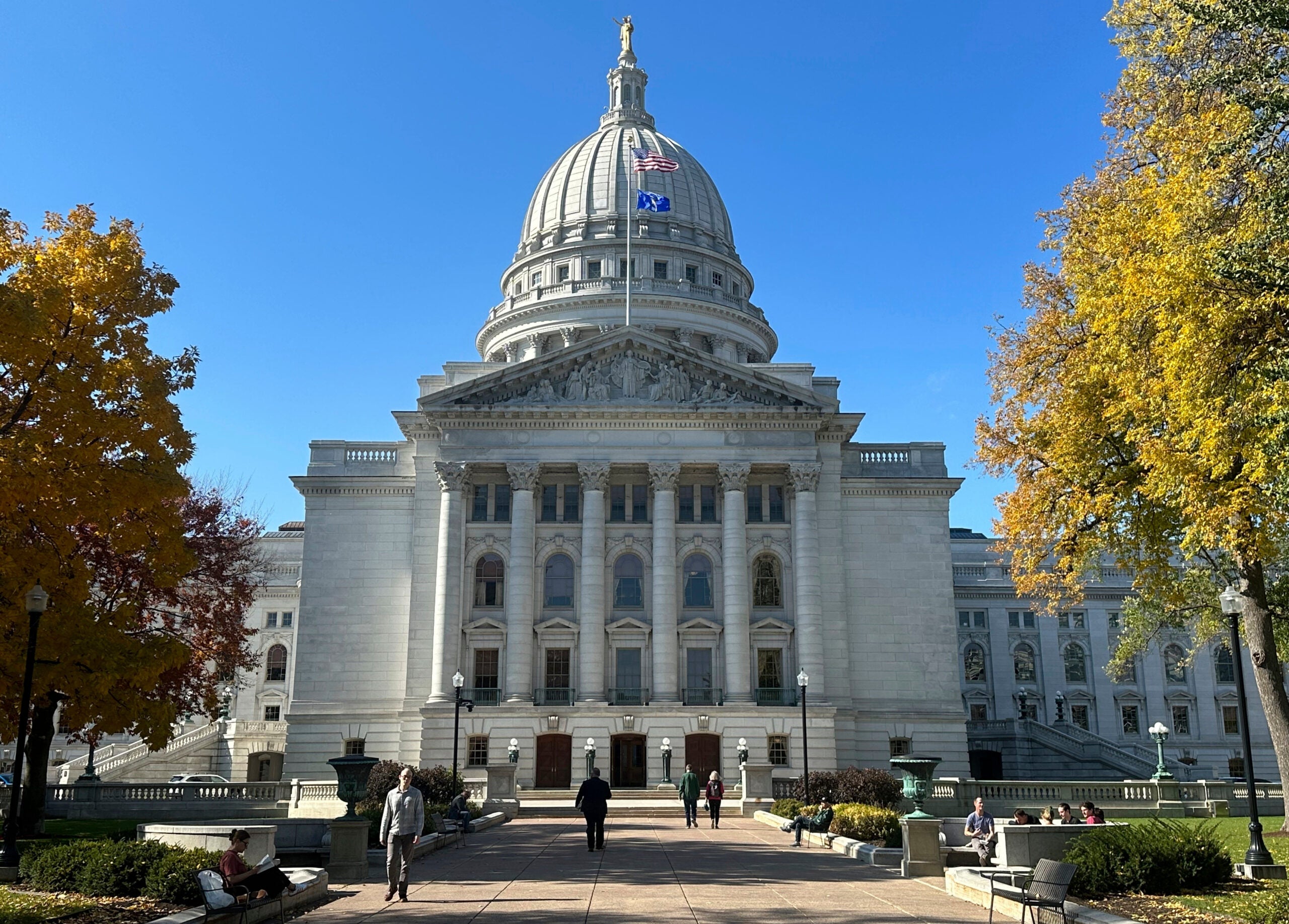The Wisconsin Supreme Court won’t hear a case that could remove up to 129,000 people from voter rolls in Wisconsin until this fall, narrowing the likelihood a purge of voter names could happen before the November election.
On Tuesday evening, the court denied a request by the conservative advocacy group that brought the case to either bypass oral arguments or expedite those arguments.
The court said oral arguments will not take place in the case before Sept. 29 — just 34 days before Election Day. After oral arguments, the court could rule any time.
News with a little more humanity
WPR’s “Wisconsin Today” newsletter keeps you connected to the state you love without feeling overwhelmed. No paywall. No agenda. No corporate filter.
The court’s timeline also assures the partisan balance of the court will have changed by the time arguments occur. Liberal Justice-elect Jill Karofsky takes over the seat currently held by conservative Justice Daniel Kelly on Aug. 1, shifting the partisan balance of the court from 5-2 in favor of conservatives to 4-3.
Justice Rebecca Bradley, a conservative, disagreed with the court’s order.
“A majority of this court disregards its duty to the people we serve by inexplicably delaying the final resolution of a critically important and time-sensitive case involving voting rights and the integrity of Wisconsin’s elections,” Bradley wrote in her dissent.
Bradley noted that, under the new timeline, “the people of Wisconsin would most likely not receive a decision in this case until after every single one of Wisconsin’s 2020 elections has come and gone (including the presidential election in November).”
The case, brought by the conservative Wisconsin Institute for Law and Liberty (WILL) in November, argues state law requires the Wisconsin Elections Commission to remove individuals from the state’s official list of registered voters if they don’t respond to a so-called “movers mailing” within 30 days. Commission policy currently allows voters to stay on rolls for up to two years after the mailing is sent.
The mailing goes to people flagged as potentially having moved in Wisconsin or out of state by the Electronic Registration Information Center (ERIC), a nonprofit, multi-state group that helps member states keep their voter registration lists current. ERIC identifies individuals who may have changed addresses after they file official government paperwork with a new address, like a vehicle registration or change of address form.
After receiving a notification from ERIC, the commission sends a postcard to the address where the potential mover is registered to vote and asks them to confirm whether they still live there.
Under current agency policy, the Wisconsin Elections Commission will wait up to two years before removing someone from voter rolls if they don’t respond to the mailing and haven’t registered to vote at a different address in the state.
WILL argues state law dictates the commission must remove individuals who don’t respond to the communication within 30 days.
The commission sent the mailer to about 232,000 people in October 2019. Since then, many have confirmed they still reside at their address or have registered at a new address in Wisconsin. According to the commission, there were about 129,000 people who had not done either as of mid-May. Those individuals would be removed from the rolls if the Supreme Court sides with WILL in the case.
Political insiders are watching the case closely ahead of November’s election, as Wisconsin has seen razor-thin margins in several recent elections, underscoring the importance of every vote. In 2016, President Donald Trump won Wisconsin by fewer than 23,000 votes.
Wisconsin Public Radio, © Copyright 2025, Board of Regents of the University of Wisconsin System and Wisconsin Educational Communications Board.







